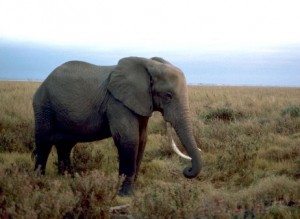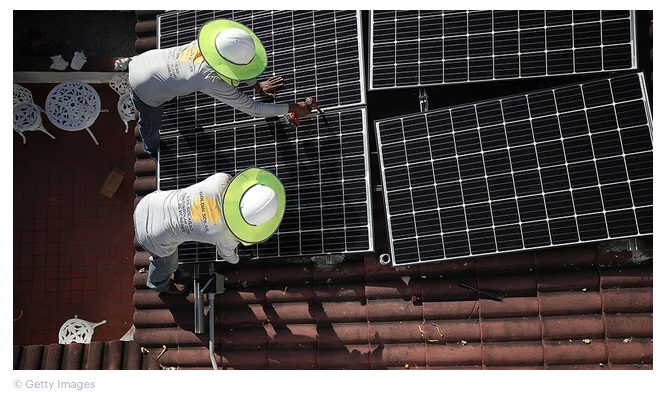 By Anna LoPresti, Summer Intern
By Anna LoPresti, Summer Intern
On July 29th, the Fish and Wildlife Service (FWS) proposed an amendment to the African Elephant Rule under section 4(d) of the Endangered Species Act, which would enforce stricter regulations on the United States ivory trade. If finalized, the rule would prohibit sale or offer for sale of ivory and sport-hunted trophies in interstate or foreign commerce. Exceptions would only be granted for antiques and musical instruments with less than 200 grams of ivory. The amendment is a long time coming, written in response to President Obama’s 2013 Executive Order 13648 on Combating Wildlife Trafficking and the resulting 2014 National Strategy for Combating Wildlife Trafficking.
Conservationists worldwide have lauded the rule as an important step toward preserving the African elephant, especially coming from the United States—the world’s second largest market for illegal ivory. However, the amendment would have much wider environmental implications than preservation of a single species. Crippling the illegal ivory trade has the potential to address the causes and effects of global climate change in two ways: by promoting ecosystem resiliency in Sub-Saharan Africa, and by weakening the channels through which transnational crime syndicates commit other forms of environmental crime—many of which directly contribute to global climate change and land degradation.
Elephants are a common example of a flagship species, used as a symbol to represent conservation and chosen based on familiarity to the public. However, elephants are also a keystone species, defined by the World Wildlife Foundation as “a species that plays an essential role in the structure, functioning or productivity of a habitat or ecosystem.” Multiple studies conducted over the past 10 years highlight the fact that removing elephants from the African savanna causes a chain reaction of negative effects, including preventing trees from reaching maturity and seeding, a factor which contributes to land degradation and desertification. Elephants, therefore, physically shape much of the African landscape and contribute to the maintenance of a healthy, well-functioning ecosystem. As noted by the United Nations Environment Programme (UNEP), “well-functioning ecosystems enhance natural resilience to the adverse impacts of climate change and reduce the vulnerability of people.”
According to the 2015 Climate Change Vulnerability Index, 7 of the top 10 most vulnerable countries are located in Sub-Saharan Africa. Additionally, the 10 countries with the lowest GDP per capita are exclusively located in Sub-Saharan Africa. This nexus of environmental and economic challenges could be partially addressed through climate change adaptation strategies such as Ecosystem-based Adaptation (EbA). The International Union for the Conservation of Nature (IUCN) defines Ecosystem-based Adaptation as “Sustainably managing, conserving and restoring ecosystems…to provide the services that allow people to adapt to climate change.” In comparison to engineering and infrastructure projects, EbA is significantly cheaper and has more direct benefits for local communities. The FWS amendment will complement EbA strategies in Sub-Saharan African by contributing to the preservation of a keystone species.
In addition to the positive effects stemming from elephant preservation, the new rule would be a significant blow to other forms of environmental crime that can undermine climate change mitigation and adaptation efforts. According to a WWF report released this April, environmental crime is becoming increasingly run through well organized, large-scale operations resembling transnational criminal syndicates. As ivory and poaching syndicates grow, they utilize their established routes to diversify networks to include other types of criminal activities. INTERPOL notes that these networks can extend beyond smuggling animal species to include toxic waste, natural resources, weapons, drugs, and people. A hit to the illegal ivory trade is therefore a hit to other criminal activities, such as illegal logging, fishing, and waste dumping.
Like poaching, these illegal activities also contribute to global greenhouse gas concentrations and increase the vulnerability of natural and human systems to climate change For example, the illegal logging trade, in addition to costing up to $100 billion in losses annually, undermines the success of the Reducing Emissions from Deforestation and forest Degradation (REDD) initiative—the burning of timber releases stored CO2 into the atmosphere, and the clearing of forests destroys one of the planet’s major carbon sinks. Given that tropical forests like the ones found in central Africa store approximately 160 tonnes of carbon dioxide per hectar, the clearing of these forests has a significant effect on GHG emissions reduction and carbon sequestration efforts.
The WWF report suggests two approaches to combat syndicate activity: a top-down strategy that would involve a global legal framework on transnational environmental crime or a UN protocol, and a bottom-up strategy calling for regulations and legal frameworks at the national level. The United Nations recently passed a non-binding resolution to take environmental crime more seriously, a top-down step that may pave the way for the eventual establishment of a protocol using the United Nations Convention against Transnational Crime (UNTOC) as a reference. In the meantime, the proposed FWS amendment is a clear example of a bottom-up approach that can be legally enforced and put pressure on other countries to follow suite.
The comment period for this proposed rule closes on September 28th, 2015.



